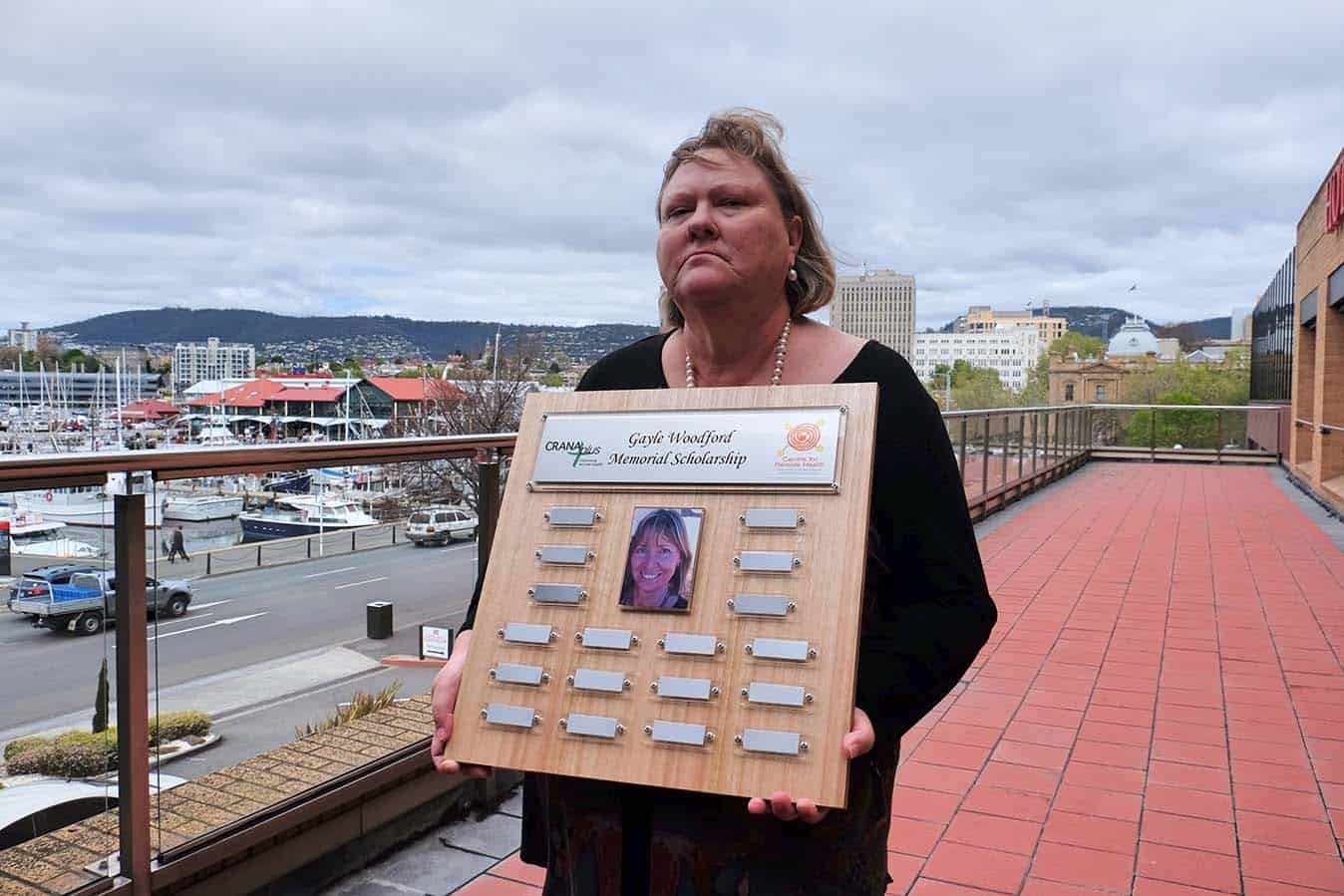Associate Professor Sue Lenthall was waiting to board a plane at Sydney Airport when news filtered through that the body of her friend and colleague, remote area nurse Gayle Woodford, had been found in a shallow grave.
The nurse on duty at the health clinic in the remote South Australian town of Fregon, Gayle went missing days earlier and breaking information pointed to her being abducted, raped and murdered by known criminal Dudley Davey, since sentenced to life imprisonment with a non-parole period of 32 years.
“I just lost it a bit,” Associate Professor Lenthall recalls of coming to grips with the heartbreaking news.
“It hit me pretty hard. I think it hit many people very hard. I found it fairly hard to cope with at first.”
A push for better protection for remote area nurses by abolishing single nurse posts and requiring two people on after-hours call outs, dubbed ‘Gayle’s Law’, grew following the tragedy, with legislation finally passed in South Australia’s Parliament late last year.
However, Associate Professor Lenthall is among many safety advocates who believe the law must extend nationally to ensure the protection of the entire remote health workforce.
Director of the Katherine Campus at Flinders University in the Northern Territory, Associate Professor Lenthall worked clinically as a RAN in the 80’s before moving into academia, particularly research exploring issues facing remote area nurses.
One of her unit’s recent research projects focused on reducing occupational stress among the RAN workforce.
“We found most remote area nurses were pretty stressed, tired, took a lot less hours off for illness or mental health issues and other nurses worked a lot more hours probably because it’s so hard to take a day off sick when you’re out there in a small community with a small staff.”
Initiatives to improve safety following Gayle’s death have included a Remote Area Workforce and Security Project released by professional body CRANAplus outlining national safety guidelines, plus a suite of resources like risk assessment tools and training materials.
Similarly, it became mandatory that remote area nurses working in the Northern Territory be accompanied by a second responder, ideally a local community member, when attending after-hours callouts.
Associate Professor Lenthall suggests the introduction of second responders in some areas has caused unintended predicaments, with some nurses still unsure about which callouts to attend and which to refuse.
“It always needs to be a balance but now with the cost of a second responder there is more pressure on nurses not to attend callouts, which could have negative outcomes.”
Associate Professor Lenthall, who appeared on the ABC’s Australian Story episode earlier this year that chronicled Gayle’s final days, remembers the 56-year-old as a highly qualified remote area nurse leader who loved her job and the Fregon community she worked in and called home.
“She was one of those that are passionate,” she says.
Two years on from Gayle’s death, Associate Professor Lenthall expresses mixed views on subsequent media coverage and political attention, pointing out that while safety is improving, it shouldn’t have taken “a really good remote area nurse to be killed” to spark action.
“There’s still quite a lot of anger out there [in the workforce] because for a lot of people they’ve had their own near misses. When Gayle was killed, I think many people thought ‘That could have been me’. It’s been a ridiculous situation really that nurses go on callout at night in remote communities on their own.”
Despite the strengthening of safety among the workforce, Associate Professor Lenthall says it is important not to let the issue fall off the agenda as time goes on.
One piece of Gayle’s legacy begun in late 2016, when CRANAplus and the Centre for Remote Health joined to establish the Gayle Woodford Memorial Scholarship, which covers course fees for the Graduate Certificate in Remote Health Practice, offered through Flinders University, where Gayle studied.
“I’m glad we’ve done some things,” Associate Professor Lenthall says.
“When you lose someone you don’t want that person to be forgotten.”








